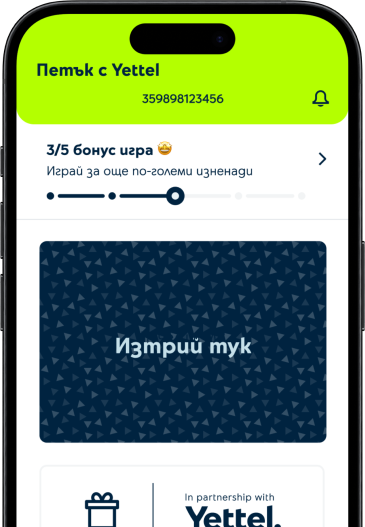Telenor plans to launch its first innovative 5G test in Q3 2019
You are here
Press release
30 May 2019Telenor plans to launch its first innovative 5G test in Q3 2019
Telenor submitted with the Communications Regulation Commission (CRC) an application for temporary use of spectrum in order to test 5G technology, Telenor Chief Executive Officer Mr. Jason King told at a media meeting today.
Telenor plans to test the new technology after the regulator grants its spectrum application, and to demonstrate in innovative way the capabilities of 5G in various areas of everyday life, showing to consumers the change this technology may bring.
This application is a result of the constantly growing expectations and needs for high-quality mobile connections by businesses and consumers. The introduction of new technologies and digital transformation are among the top priorities of both the European Union (EU) and the Bulgarian government and Bulgarian telecom sector shares these ambitions. According to the joint EU targets, by 2020 all member states must have at least one city with 5G connectivity by 2025 all urban areas, major roads and railways must have uninterrupted 5G coverage.
“High-speed mobile networks are a key precondition for any country in order to be competitive on the global market. Besides the much faster speeds and higher capacity, 5G will also allow for building new ways to communicate, new services and even new business models”, commented Mr. King. “In Bulgaria, however, we have reached the limits of the existing technologies and allocated spectrum. To further expand the mobile market we need to work together with the government and the Regulator and to tackle together the obstacles in front of us”, he added.
Spectrum availability and effective allocation, significant decrease in spectrum prices and substantial liberalization of the telecommunication facilities construction regulations are among the main challenges that Bulgarian mobile operators face today.
Bulgaria is still lingering when it comes to liberation and allocation of spectrum in all bands – low, medium and high, and this spectrum is vital for not only offering 5G-based services, but also for providing high-capacity, high-speed connectivity in remote areas of the country. Currently, Bulgaria is the only EU member state that has not fully released the spectrum in the 800 MHz band for use with 4G. The other low band, in 700 MHz, is also partially blocked and it is of key importance for building a 5G network. The same is also valid for the 3.6 GHz band where the available spectrum is not sufficient to cover the operators’ needs.
“We are having some very fruitful discussions with the Ministry of Transport, IT & Communications, with the CRC and with the Ministry of Regional Development & Public Works”, said Mr. King.“The parties agreed that spectrum prices optimization is an important condition for more investments in the mobile communications sector, which will also boost the competiveness of the country”, he added.
“Spectrum prices must reflect Bulgarian market environment and correspond to the EU averages and presently, these prices are incomparably higher. For example, the one-off fee for use of spectrum in the 800 MHz band in Bulgaria is 2.5 times higher than the EU average and the annual fee is double the EU average”, commented Telenor Corporate Affairs Director, Mrs. Mihaela Kaladjieva.
“Together with the CRC, we are working on a model for defining prices that make economic sense. If this model is applied, spectrum prices will be at the EU averages and this is operator investments in networks for the 2020-2023 period, 5G included. Such a step would also lead to many other social and economic benefits for the country and the society”, she added.
The construction regulations for implementation and upgrade of mobile networks in Bulgaria are another obstacle for the digital future of the country. According to a comparative analysis of the construction regulations for mobile networks in Europe, Bulgarian is among the few countries that still have the complicated and very slow permitting process for mobile base stations upgrade. In most other countries, this can be done with no construction permits. The last countries to alleviate these regulations were Serbia, Romania and Northern Macedonia.





